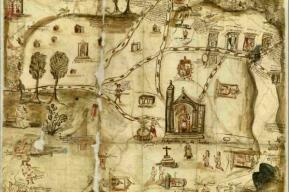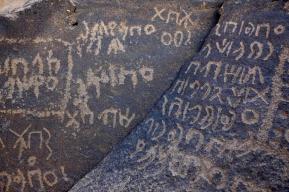News
Jabal Ikmah in AlUla Secures Memory of the World Status

The documentary heritage collection titled ‘Arabian Chronicles in Stone: Jabal Ikmah’ comprises approximately 300 inscriptions engraved into the mountain’s walls during the ancient Dadanite and Lihyanite civilisations, dating back to the second half of the first millennium BCE.
These inscriptions, despite their age, have remarkably preserved their original form, allowing us to read them as they were written centuries ago. Collectively, they represent the most extensive concentration of well-preserved Dadanitic and Lihyanite inscriptions found anywhere in the world.
UNESCO’s Assistant Director General for Communication and Information, Tawfik Jelassi expressed, ‘The Arab world is brimming with documentary heritage that shines a light on the region’s cultural significance. All too often our documentary heritage is lost to history, so it is encouraging to see their nomination for UNESCO’s MoW International Register, a testament to […] preservation efforts and a demonstration of Arab documentary heritage exhibiting the accomplishments of intercultural dialogue.’
A Gateway to Ancient Life
Beyond their exceptional preservation and intricate aesthetic, which suggests the skilled craftsmanship of the masons who engraved them, this collection of documentary heritage holds immense value in its contribution to understanding our shared history. The inscriptions provide a glimpse into the economic and social life of an ancient era, referencing names, communities and social structures. They describe religious and burial rituals, while also shedding light on agricultural practices, enabling us to gain a deeper understanding of how these communities flourished.
Furthermore, the inscriptions at Jabal Ikmah highlights lesser-known histories and dynamics within the Arabian Peninsula during this period, particularly emphasising the roles of women. The inscriptions depict women as property owners, agricultural land holders and participants in rituals within Dadanite society.
Cultural Exchange and Language Evolution
Situated along the crossroads of the ancient Incense Route, which facilitated the trade of valuable commodities such as frankincense and myrrh across Egypt, Southern Arabia and beyond, AlUla thrived as a vibrant settlement shaped by social, economic, and inter-cultural exchanges. This bustling hub attracted merchants, pilgrims and travellers from diverse regions, ultimately fostering the development of alphabets and languages. The inscriptions at Jabal Ikmah bear witness to the evolution of Old Arabic and its dialects. The inscriptions demonstrate the enriching power of intercultural dialogue. They represent the contributions of multiple ancient cultures and illustrate how these interactions influenced the cultural trajectory of the region.
Essentially, they exemplify how the world’s documentary heritage belongs to all of humanity. Their inclusion in the MoW Register not only demonstrates their significance but also emphasise how preserving and providing access to this heritage can enhance our collective sense of global citizenship.






